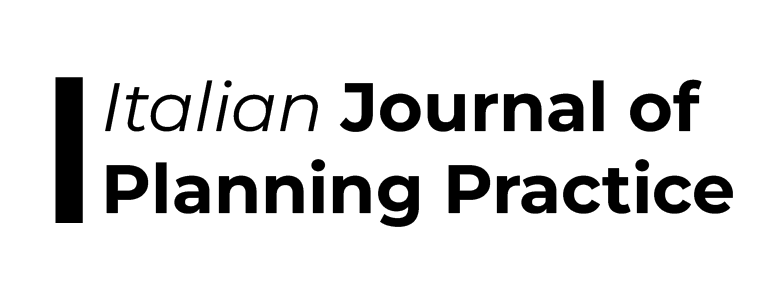PEER REVIEW PROCESS
All articles published in this journal have undergone a rigorous peer review process, based on initial editor screening and anonymous double-blind refereeing where authors and reviewers are unknown to each other. IJPP strives to provide review reports within 8 weeks from submission. Two reviewers per article are involved in the double-blind peer review process. Reviewers are recruited among international scholars with expertise in the specific field of research.
The editors of the Italian Journal of Planning Practice (IJPP) are responsible, with the help of anonymous reviewers, for deciding which of the articles submitted to the journal should be published. In evaluating the submitted works, the editors will limit themselves only to the intellectual content. The editors ensure the confidentiality of the submitted works until they are published. The reviewers of IJPP assist the editors in taking the decision of publishing a submitted manuscript. By formulating suggestions and comments to the authors, the reviewers contribute to the improvement of submitted works. In order to achieve these goals, the reviewers are to evaluate objectively the submitted works and to clearly present their views regarding the manuscript. The reviewers are bound to treat the manuscript received for peer reviewing as confidential. Since IJPP employs a double blind peer review system, the communication regarding the submitted manuscript would be made exclusively between the referees and the editors of IJPP.
Reviewer Feedback Criteria
Reviewers are asked to provide feedback on the following points:
1) Does the abstract clearly and concisely summarize the paper and state the main results? Can the abstract and main body of the paper each stand alone?
2) The introduction builds a logical case and context for the problem statement. The conceptual framework is explicit and justified. The research question (research hypothesis where applicable) is clear, concise, and complete.
3) The literature review is up-to-date and well-integrated. The number of references is appropriate and their selection is judicious.
4) The research design and methods are clearly described and sufficiently detailed to permit the study to be replicated. The design is appropriate for the research question.
5) Data analysis procedures are sufficiently described. Data analysis procedures conform to the research design; hypotheses, models, or theory drives the data analyses.
6) Results are organized in a way that is easy to understand. Results are presented effectively and are contextualized.
7) The conclusions are clearly stated; key points stand out. Justification of conclusions is well articulated. Interpretations of the results are appropriate; the conclusions are accurate (not misleading). The study limitations are discussed.
PUBLICATION FREQUENCY
IJPP publishes one issue per year, in the fall. Articles are published immediately after acceptance as online first. At the end of the year, articles are included collectively within the issue of that year.
OPEN ACCESS POLICY
This journal adheres to the BOAI definition of open access and provides immediate open access to its content on the principle that making research freely available to the public supports a greater global exchange of knowledge. Authors will hold the copyright of their research published in IJPP.
PUBLICATION COSTS
At the Italian Journal of Planning Practice we are committed to fostering accessible and high-quality research. To support the dissemination of knowledge without financial barriers, we do NOT charge any submission or publication fees.
Our journal operates on a fully open-access model, ensuring that all published articles are freely available to researchers, practitioners, and the wider public worldwide. This approach promotes greater visibility, collaboration, and impact for authors while upholding the principles of equitable and unrestricted access to scientific research.
By eliminating financial constraints, we aim to encourage diverse and innovative contributions from scholars across all backgrounds. We welcome your submissions and look forward to sharing valuable research with a global audience.
ARCHIVING
This journal utilizes the LOCKSS system to create a distributed archiving system among participating libraries and permits those libraries to create permanent archives of the journal for purposes of preservation and restoration. More…
